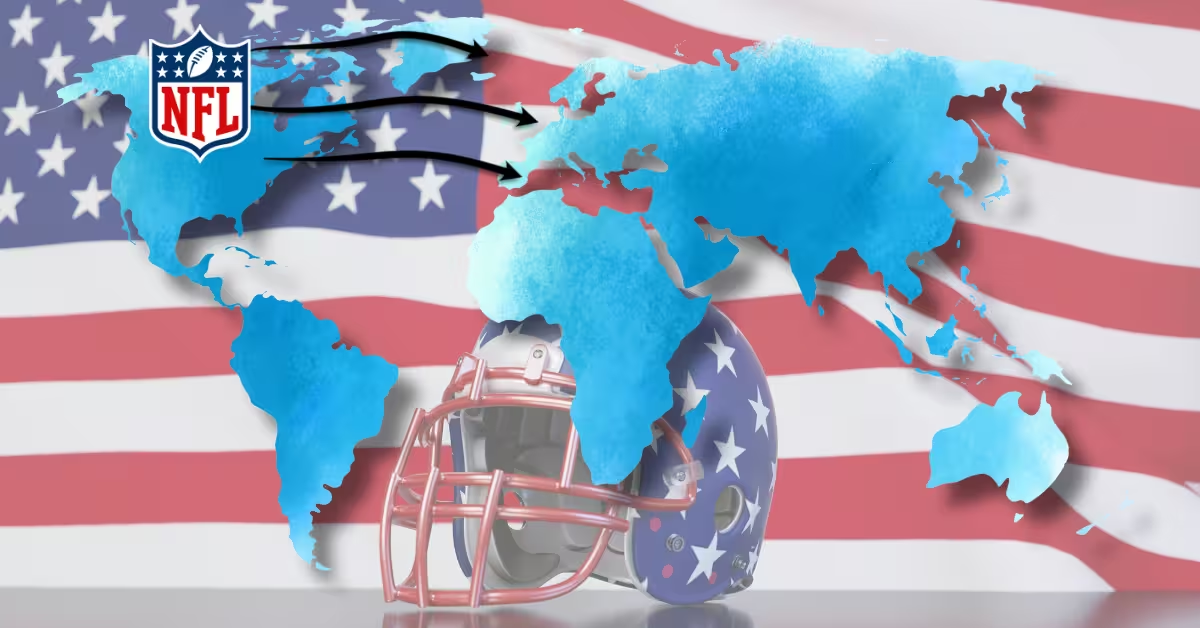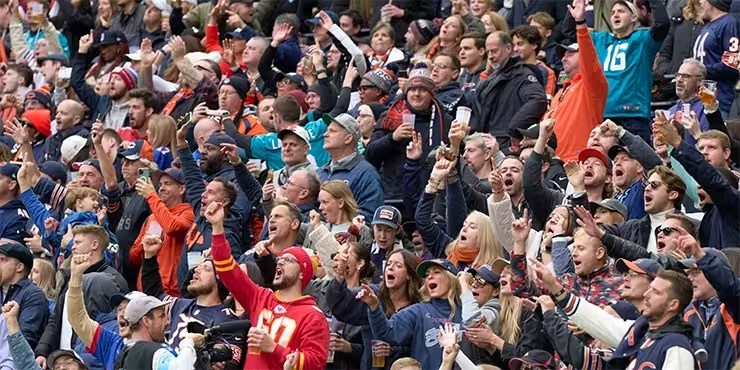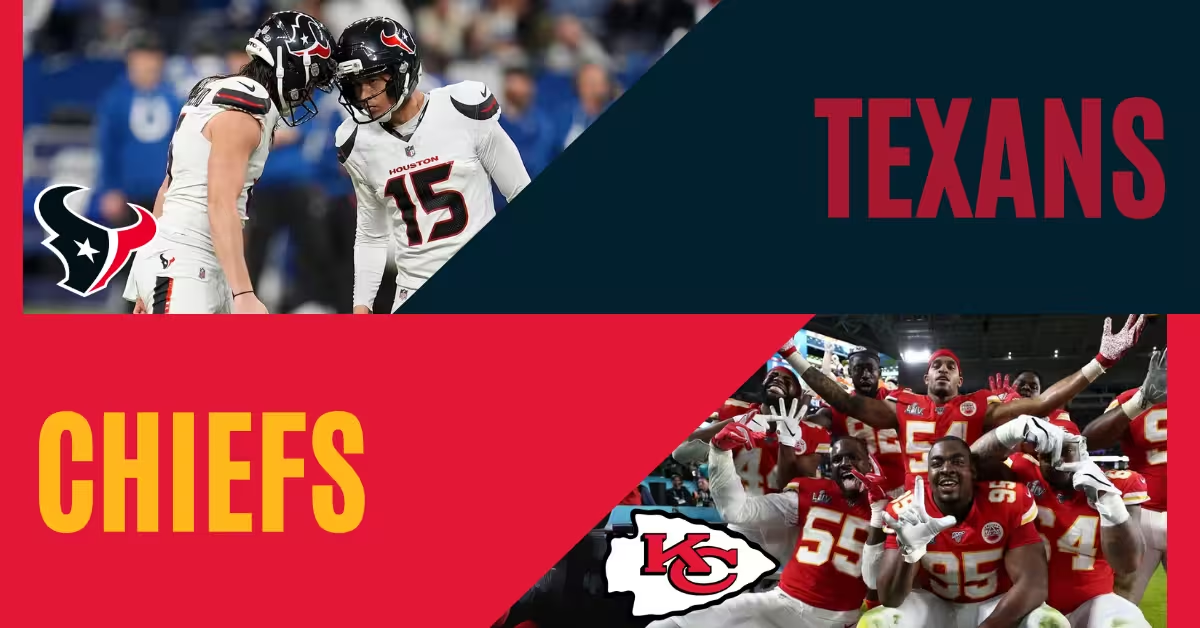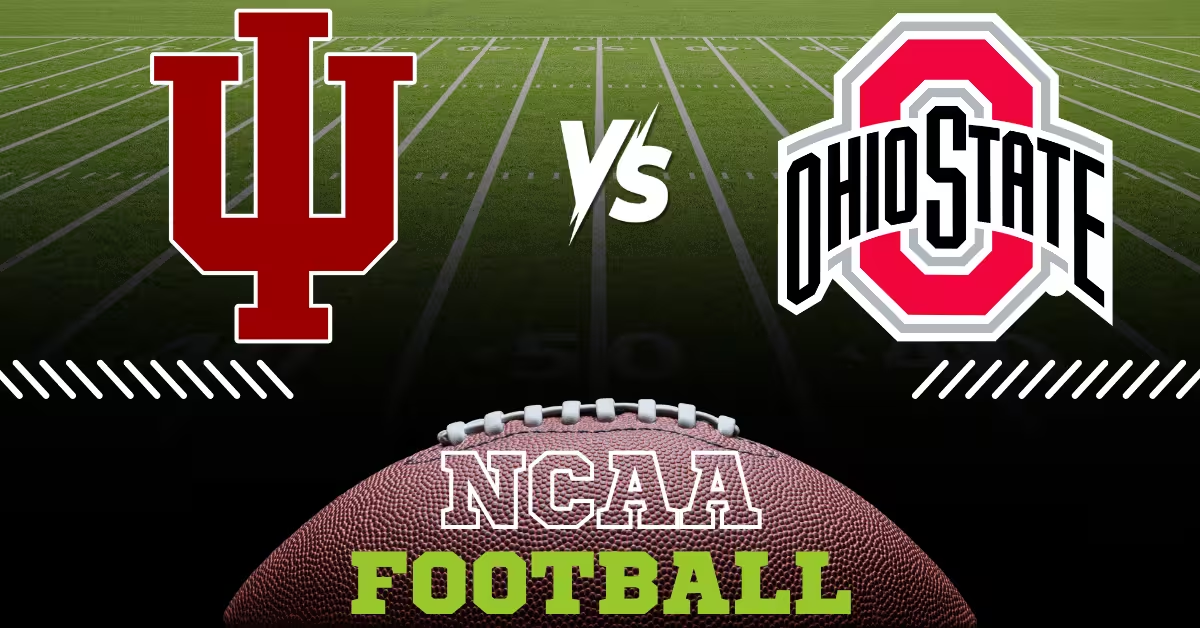NFL Overseas Expansion: How International Games Could Change Betting Strategies

The NFL isn’t content with taking over every Sunday, Monday, and Thursday night, nooooo. It already rules the roost in the U.S., but that’s not good enough! It wants to go global. That’s right, y’all; America’s favorite game (that would be football) is expanding overseas.
Now Europe will have two versions of football, but they call soccer football, so it could get confusing.
Back to the point! What began as a one-time, then once-a-year novelty game in London is taking place all over Europe. Joining the rotation? That would be Germany, Ireland, and Spain are on deck. Brazil wants in as well! And that’s amazing for global fans of the game.
But for bettors in the U.S.? It means recalculating everything about your strategy.
International games won’t be the same. Why? A little thing called time zones. Ever had jet lag? Ever had jet lag and tried to play a whole football game? See what we mean?
Practice routines will be interrupted, stadiums will be strange and unknown territories with no home team fans, and the weather is also a factor. What was once a neutral curiosity on the calendar will become something that can change spreads, derail props, and throw totals right out the window!
If you are a football fan and want to stay ahead of the curve? This is for you! We are going to explain every detail about how NFL overseas games will screw up players’ performance, change the odds and lines, and how bettors can adjust before the markets do!
NFL’s Overseas Expansion: Where We Stand
The NFL’s push to grow internationally began in 2007, when the Miami Dolphins and New York Giants faced off at Wembley Stadium in the league’s first-ever regular-season game played outside the U.S.
At the time, it felt like a one-off game that was built for marketing and optics. But that matchup brought in over 80,000 fans, despite the heavy rain and a mud-soaked pitch, and it proved that there was a real appetite for American football abroad.
That game laid the groundwork for what would become the NFL International Series, which has only grown steadily over almost 20 years. Since then? The league has held more than 40 regular-season games across London, Mexico City, and, most recently, Germany!
Where It’s Going in 2025
The 2025 NFL season will feature seven international games, and that’s the most in league history! The locations span the following five countries:
- United Kingdom: Three games (two at Tottenham Hotspur Stadium, one at Wembley)
- Germany: Two games (one in Munich, one in Frankfurt)
- Brazil: One game at Neo Química Arena in São Paulo
- Spain: First-ever NFL game in Madrid, at the Santiago Bernabéu
- Ireland: One game in Dublin, likely at Croke Park or Aviva Stadium
The above additions mark the NFL’s clearest signal yet that global expansion is part of the league’s long-term plan. The days of one or two games tucked into the October schedule are over, and they’re now strategic, branded events with marketing reach, international partners, and growing local fan bases.
A Long-Term Plan for Europe (and Beyond)
Commissioner Roger Goodell has made the league’s ambitions known. He’s publicly floated the idea of a four-team European division, and in the past has suggested that London alone could support two full-time franchises. While the logistics are still really complicated, travel, player contracts, time zones, and visa rules among them, the NFL is moving closer to some kind of permanent international footprint.
That future could involve new expansion teams or a relocation from a current U.S. franchise. Either way, bettors should be getting ready for a landscape where NFL overseas games aren’t the exception; they’re going to be part of the standings and the futures markets.
Global Marketing Rights: A Key Piece
Supporting this push is the NFL Global Markets Program, which was launched in 2021. It allows teams to establish marketing partnerships and fan engagement campaigns in certain countries. As of now, 29 of the 32 NFL teams have international marketing rights.
- The Jacksonville Jaguars have long been tied to London, and they’ve officially secured UK rights through this program.
- The New England Patriots hold exclusive rights in Germany, where they’ve already hosted fan festivals and built a sizable local following.
- Other teams have targeted Mexico, Australia, Brazil, Canada, and South Korea, planting the seeds for long-term fan growth.
Travel Fatigue & Time Zone Impact on Performance
Jet lag and hectic travel itineraries can be brutal, and they have real effects on NFL teams. Crossing multiple time zones disrupts players’ body clocks and can sap performance.
Sports science shows that when athletes compete outside their normal circadian rhythm, they suffer more than just mental lapses; their physical strength and reaction time decline when they’re off schedule.
We’ve seen this in practice: for years, West Coast teams were notorious for struggling in early 1:00 pm ET kickoffs in the East, and East Coast teams usually aren’t at full form when they play in late-night games out West.
Now amplify that effect for overseas trips, where teams might be 5–8 hours off their usual time. The result? Sluggish starts and underprepared play. Teams coming back from London without a bye week have usually underperformed: in a small sample, those post-London teams scored fewer points than expected and allowed more points than expected, a pattern that’s consistent with a tired, jet-lagged squad.
In 2023, when the Bills played the Jaguars in London, Jacksonville stayed in the UK for two weeks (having played the week prior), and Buffalo didn’t arrive until Friday morning, which was barely 48 hours before kickoff.
The Bills came out flat, and coach Sean McDermott admitted their energy “was not good enough early in the game,” vowing to re-evaluate travel plans the next time.
Bettors should adjust point spreads or totals based on these kinds of rest/travel disparities. If a West Coast team has to fly to London (or a team like Buffalo travels on a short week), think about the toll it takes on them: fatigued teams could start slow, and their odds of covering large spreads drop. Don’t ignore the hidden bye week dynamics either! Some teams now choose to play the following week instead of taking an immediate bye, but as history shows, that can be risky. Always check how much rest and prep time each side has had when you’re handicapping an international game.
Stadium Atmosphere & Crowd Dynamics
One of the most striking things about NFL games abroad is the truly unique crowd atmosphere. These are neutral-site games in every sense of the word: the usual home-field advantage is absent.

The stands are filled with a mix of fans wearing all sorts of NFL jerseys (not just those of the teams playing), and that’s a vibe that’s closer to a Pro Bowl crowd than a rowdy partisan NFL stadium.
European fans also tend to cheer both teams’ big plays and don’t necessarily observe the same etiquette (like remaining quiet when the offense is at work). This can cause some unusual moments, like a “home” team in London could still need a silent snap count because the crowd noise isn’t strictly in their favor.
From a betting perspective, this means you should give little to no boost for home-field in NFL overseas games. And those results bear that out: since 2007, favorites have won about 65% of London games straight up, roughly the same as normal, and favorites are almost exactly .500 against the spread in London. The neutral setting hasn’t produced a major bias for favorites or underdogs overall.
What has been really notable is that most London games feel flat, as they lack that usual home energy or urgency, and that works in favor of the underdogs.
And European crowds all have their own style. They’ll do the wave, cheer at strange times, and create a spectacle, which can only help underdogs who don’t have to deal with a hostile road environment. Momentum can change without a true home crowd to quell it, so live bettors can find value in spotting an underdog gaining confidence in a neutral atmosphere. If you’re handicapping these games? Take away the typical 2-3 point home-field advantage. Treat it as a bowl game at a neutral site, where raw team quality (and travel adaptation) matters way more than crowd support does.
Weather, Turf, and Stadium Conditions
Overseas venues also introduce unfamiliar field conditions and weather factors that bettors need to be aware of! London games have been played at both Wembley Stadium and Tottenham Hotspur Stadium, and there’s a huge difference: Wembley has a natural grass pitch, and Tottenham uses a replacement artificial turf surface for NFL games.
That turf at Tottenham? It drew loud complaints; after a 2023 game there, Buffalo Bills players called it “f–king cement,” as the normal grass was swapped out for a harder artificial field to protect the soccer pitch. Hard or slick turf can impact play with slower cutbacks, different cleat choices, and potentially higher injury risk (which could affect in-game betting if players go down).
The German venues used in Munich and Frankfurt have been grass, but those weren’t great either. In the NFL’s first Munich game (2022), players and coaches griped about the slippery grass at Allianz Arena; it was so bad that the field had to be replaced afterward. By 2023, in Frankfurt, the NFL installed a hybrid grass system to prevent similar slipping issues after learning from Munich.
The turf issues can influence totals and props: a slick field could lead to more conservative play-calling (fewer deep cuts on routes) and lower scoring, whereas a rock-hard, fast surface could favor offenses (but also possibly cause more field-goal attempts if drives stall on unfamiliar footing).
The weather is another factor. London is known for rain and damp conditions in autumn, and the very first London game in 2007 turned into a muddy slog, a 13-10 game played on a soaked field at Wembley. Although the field quality has improved since that “mudfest,” you still see rain impact some UK games (wet footballs causing fumbles or drops).
Bettors should treat the weather forecast in London or Germany just as seriously as they would for, say, Chicago or Green Bay. Totals for international games have usually skewed lower, and it’s partly due to weather and partly travel fatigue. The under has hit in 17 of 33 London games through 2023, and the last four London games (through 2023) all went under, averaging just 43.5 total points.
Some of it is timing (early kickoffs) and jet lag, but soggy European fall weather and unfamiliar wind patterns in open soccer stadiums do play a part. And consider altitude if the NFL returns to Mexico City (Estadio Azteca’s thin air has its own effects), though Mexico games are on pause until the stadium is renovated. Do your homework on the venue: grass vs. turf, recent field conditions, and forecasted weather. The factors could tilt a prop (e.g., favor a running back’s yards if receivers will be slipping in routes, or vice versa) or make a difference on the over/under. And if you hear players openly complaining about a field pre-game, don’t ignore it; it could be an omen of a sloppy, lower-scoring affair.
Bookmaker Adjustments & Market Inefficiencies
Whenever the NFL ventures into new territory (literally), bookmakers have to adjust their lines, and that means opportunities for sharp bettors. By now, oddsmakers are aware of the basic trends in international games, but that doesn’t mean they always get it right. One notable trend has been on totals: as mentioned, a slight lean toward unders in London historically (about 52% unders) and several low-scoring games in recent years . Books will adjust totals down a bit for jet lag and unfamiliar settings, but there may still be value if you anticipate extreme scenarios (such as especially bad weather or two tired offenses). Watch the odds movement in the week leading up to an NFL overseas game.
The public might not fully account for travel factors until closer to kickoff, so early lines could be soft. For example, if you knew the Jaguars would stay in London and the Bills would take a red-eye flight, you could have grabbed Jacksonville as an underdog before the market adjusted. In that 2023 game, bettors who got ahead of the news profited when the Jags won outright as +5.5 underdogs (the line closed a bit tighter as sharp money came in on Jacksonville).

Another potential inefficiency is public perception. Casual bettors sometimes overrate teams with international experience (“Oh, Team X has played in London three times, they’ll be fine”) or, conversely, panic about travel for teams that end up handling it well. Don’t blindly follow these narratives. A team like Jacksonville does have a routine for London, but it doesn’t guarantee a cover; the Jags have had mixed results despite basically being London’s home team (they’ve played a league-high 13 games in the UK). If the public inflates the Jaguars’ odds due to their London familiarity, you might actually get line value on the opponent. Always ground your bets in the fundamentals of the matchup plus the travel/rest info, rather than a simplistic “Team X is used to London” take.
Keep an eye on player prop markets as well, as these can be slow to adjust to overseas nuances. Sportsbooks will often set player props based on season averages, but we’ve seen top players underperform statistically in London games – for instance, in 2023, both Lamar Jackson and Ryan Tannehill had lower-than-usual passing yards in a London matchup, and Trevor Lawrence threw well below his average in one of his London games. Travel can disrupt timing and practice, which might mean fewer explosive plays (hurting overs on yardage props). Or a coach might rotate backups in more liberally if he senses players getting gassed by travel, which could affect snap counts for fantasy/DFS purposes. These are the kind of subtle edges where a bettor paying attention can profit. If you know a star player struggled with the long flight (watch mid-week practice reports or local press), maybe fade his props or DFS usage. Meanwhile, books sometimes over-adjust in other areas, like assuming there will be a huge drop-off in offense and setting the total ultra-low, even when two high-powered teams might still find ways to score. If you see an over/under that’s been hammered down due to narrative, and you have reason to think it’s overblown, don’t be afraid to go contrarian.
Lastly, line timing is super important. International games often kick off at unusual times (like 9:30 am Eastern on Sunday), which means line movement can happen late Saturday or very early Sunday when casual bettors finally notice the game. Sharp bettors who act before the crowd can catch lines before they move. The overseas effect is still somewhat new, so occasionally sportsbooks misprice the situation. For instance, historically, bettors didn’t account enough for jet lag on teams the week after London, but analysis showed those teams often underperform the next game, a nugget you could exploit in advance. Stay informed on travel schedules, read quotes from coaches/players about the trip, and look for any market overreaction or underreaction. International games add volatility, and with volatility comes opportunity for those who are prepared to seize it.
DFS & Prop Betting Nuances
NFL overseas games don’t just challenge bettors on spreads and totals – they also introduce wrinkles for daily fantasy sports (DFS) players and prop bettors. One big factor is how coaching strategies might shift due to the unusual circumstances. Some coaches take a simpler, more conservative approach in an international game, especially if practice time was cut short by travel. This could mean a run-heavy script or fewer elaborate trick plays, which in turn affects DFS output (e.g., fewer shootouts, more field goal drives). We’ve seen a tendency for London games to start slowly, as teams feel each other out (and shake off jet lag).
If you’re playing DFS showdown contests for a morning London game, consider that the first half might be low scoring. That could elevate the value of kickers and defenses in DFS lineups, relative to a typical game, and downgrade fringe big-play receivers who might normally rely on a high-flying game script. Conversely, some coaches might try to “make a splash” for the international crowd (there’s a theory that teams want to be ambassadors for the sport, possibly leading to a surprise onside kick or a 4th-down attempt to excite fans). But more often than not, they stick to what’s comfortable – no coach wants a long flight home after a failed trick play costs them a win.
Prop bettors should also monitor player usage closely. Travel-related factors can lead to limited usage of certain players.
For example, if a player is dealing with a minor injury, teams sometimes err on the side of caution and either leave them home or put them on a pitch count abroad. (It’s not uncommon to see a late-week injury update that a player “did not travel with the team,” which obviously means you should hit the under on any of his props.)
In 2024, the Chicago Bears ruled out safety Jaquan Brisker with a concussion, specifically noting he did not travel to London – an indication you wouldn’t see with a normal game. Keep an eye on those Saturday injury reports before an international Sunday; a surprise absence could open up value on overs for a backup’s props or unders for a player who might be less than 100%. Also consider fatigue in play-calling: a team that normally pushes tempo might slow it down if players are huffing and puffing. That could impact overs/unders on things like the number of plays, QB pass attempts, or receiver receptions (fewer no-huddle situations, more clock running).
DFS angles abound in these games. If you believe a team will come out sluggish, you might focus on a workhorse running back (assuming the team leans on the run in a simpler game plan) or even the opposing defense (a jet-lagged offense is prone to turnovers and sacks). If weather or turf is an issue, downgrade kickers on bad turf (we’ve seen missed kicks on unfamiliar fields) or upgrade possession receivers if deep passing is less effective. And remember, the game flow could be weird – some international games see low scoring early and then a flurry of points late once teams adjust. This opens opportunities for savvy live bettors or second-half DFS lineup pivots. Same-game parlays should be built with an understanding that correlations might differ from a standard game: for instance, you might parlay an under on a QB’s yards with an under on the game total and an over on the opposing RB’s carries, telling a story that the QB’s team is jet-lagged and falls behind, leading to a grind-out game by the opponent. These nuanced approaches can pay off if you read the tea leaves (or in this case, the travel itineraries and practice reports) correctly.
Betting Strategies for International Games
What are some concrete adjustments that you can make when you bet on international NFL games? We’ve got five of them for you!

1. Monitor Travel & Rest Days
Always factor in how and when each team traveled. Did one team fly out early in the week while the other left Thursday or later? Is one coming off a bye or long rest? These details matter. Give a boost to the team with more recovery and prep time, and be cautious with teams on short rest or extensive travel (especially west-to-east travel, which is harder on body clocks). If a team has to play the very next week after an NFL overseas game, consider fading them or adjusting the spread; the fatigue factor is real, as history shows in their ATS performance.
2. Fade Public Perception
The betting public often latches onto simplistic narratives in these games. For example, “Team X always wins in London” or “Jet lag will destroy Team Y.” Use these to your advantage. If the public overrates a team’s overseas experience (like blindly backing Jacksonville just because of their UK familiarity), you might find line value on the other side. Conversely, if a team is getting no love because “they had a long flight,” but you have intel that they handled it well, you could snag a favorable number. In short, be contrarian when the public overcorrects for the travel storyline.
3. Watch Line Movement Early
Keep a close eye on line moves as soon as the matchup is set. Oddsmakers will post an opening line often not fully incorporating the travel nuances; those moves will happen when sharp bettors weigh in or news comes out. If you have a strong angle (like you know one team historically struggles with long trips or a coach openly hates the disruption), bet early before the books adjust. By Sunday morning of a London game, the line may have shifted several points if significant money or news (like a player not traveling) hits the wires. Be ahead of that curve.
4. Limit Unit Size on Unknowns
With less predictability comes more variance. These games can be volatile – weird things happen overseas (strange bounces on unfamiliar fields, players cramping from travel, etc.). If you’re unsure how a team will handle the trip or the conditions, consider scaling down your bet size compared to a normal game. It’s okay to have a lean, but acknowledge the higher uncertainty. Think of it like betting on a bowl game in college. You do your research, but you accept that there are extra variables. Preserve your bankroll by not overextending on a game that carries more unknowns than a regular NFL game.
5. Focus on Totals & Second-Half Bets
One of the clearest patterns in international games has been sluggish starts followed by chaotic finishes as fatigue sets in. This opens two avenues: Totals and 2nd half wagers. If you anticipate a low-scoring start, you might bet the first-half under or wait to live-bet an adjusted total. Some bettors also have found success playing second-half overs, figuring that defenses wear down more than offenses late (jet lag can kill your concentration on tackling). Additionally, if one team was jet-lagged and fell behind early, the second half might see them in catch-up mode, and that’s good for a live bet on them to cover a bigger spread or to push the game over the total. Use what you observe in the first half: is one team clearly tired and slow? Did the commentators mention players looking gassed? Adjust at halftime, as there can be value in 2H lines before the bookmakers fully account for the fatigue factor that you’ve identified. Remember, a lackluster first half in London (perhaps a 6-3 score) doesn’t mean the game can’t explode in the second; sometimes teams find their footing and points pour in late. Being nimble and ready to strike on second-half lines can turn a profit in these unique games.
What If the NFL Adds an Overseas Team?
The NFL’s international ambitions don’t stop at a few games each year; the league has openly speculated about a permanent overseas team or even a European division in the future. It might sound far-fetched, but let’s play it out: What would it mean for bettors if, say, the London Jaguars or a Frankfurt franchise became reality?
- First, the logistics would create some wild scheduling quirks. A London-based team would likely face an imbalance of home and away stretches. They might play a bunch of home games in a row (to minimize back-and-forth travel) and then embark on a multi-week US road trip. In fact, NFL officials have suggested a possible formula: a European team could have two big U.S. road trips per season, one of two games and one of three games, rather than flying across the Atlantic eight separate times. As a bettor, you’d have to account for those blocks of travel – e.g., maybe that team performs decently in the first game of a long U.S. trip but wears down by the end of it. Home games for an overseas team could become a huge advantage if visiting teams struggle with the time change. A sleep expert theorized that a London team’s players would acclimate to the travel demands over time, potentially giving them an edge when U.S. teams come to visit.
- The “jet lag penalty” might change; the London team could handle it better, and every opponent is dealing with a one-off hardship. We could see point spreads for London home games shaded a bit more toward the home team than a typical home-field advantage. That London team’s away games would be brutal; every road game involves a transatlantic flight. You could see them favored at home frequently, but big underdogs in a lot of road spots, especially if playing in the U.S. West Coast (think of a London team at Seattle; that’s body-clock hell).
- For season-long bets, this introduces both opportunity and risk. Win totals for the overseas team might initially be set cautiously by books, as nobody’s sure how they’ll handle the travel gauntlet. There could be value in betting extreme outcomes; maybe they crush at home and steal a couple of road wins, going over their win total, or conversely, they could flame out due to travel fatigue and underperform. Futures like division odds or making the playoffs would be interesting: would the market underrate them because of travel concerns, or overrate them because of a presumed home advantage? Until we have data, astute bettors would need to read between the lines. Pay attention to how the team manages logistics (do they base in the U.S. for parts of the season? Do they invest in sleep science heavily?). Those could be clues to whether they’ll exceed expectations or not.
- Individual player performance and awards (MVP, etc.) could also be affected. A star quarterback on a European team might put up great numbers at home but struggle in some road games after long flights, potentially hurting season-long stats or consistency. Voters might subconsciously discount players on an overseas team if that team has an uneven schedule. This could make betting on awards for those players tricky. On the other hand, if an overseas team is competitive, it could be a compelling story – imagine the narrative of a London team making a playoff push despite the travel; a coach of the year nod could be in play.
- There’s also the betting public’s bias to consider. Many casual bettors might simply fade a Europe-based team in the early going (“no way they can handle all that travel”), but if you have reason to believe otherwise, like the team is built with depth and a smart travel plan, you could profit by going against that public bias. The reverse could happen too: a novelty factor where the public supports the overseas team out of fascination, skewing lines in their favor undeservedly. As always, your edge will come from knowledge and not emotion. If the NFL adds an overseas team, treat it as a new market inefficiency waiting to be solved. We’ll have to recalibrate ELO ratings for that team’s home vs away splits, and bookmakers will, too!
Are You Ready for the NFL’s Next Betting Frontier?
The NFL’s international presence is expanding, and so are the betting opportunities that come with it. What used to be one token London game per year has turned into a full schedule of NFL overseas matchups, each with its own challenges and variables.
For bettors, this means that their old strategies could use a tune-up. Travel, turf, and time-zone chaos can render a straight statistical comparison incomplete. The smart bettors will be the ones who incorporate the new factors into their models: tracking line movement related to travel news, studying how teams historically perform after long trips, and adjusting risk when unpredictability is high.
Are you changing with the NFL as it enters this next frontier? It could look like backing off a heavy favorite who just flew 5,000 miles, or hopping on a total that doesn’t reflect a looming London downpour. It could mean getting up early to live-bet a groggy first quarter, or digging into a beat reporter’s notes about how a team spent its week in Munich.
As the NFL’s global future unfurls, with talk of more games in far-flung locales and permanent NFL overseas teams, bettors who evolve alongside the league will find the best angles.
The NFL isn’t confined to U.S. soil anymore, and that means your betting playbook shouldn’t be, either!
You can turn the NFL’s international experiments into your betting advantages. The next time you see “LOCATION: London (or Berlin, or Mexico City)” on the schedule, don’t sigh and skip the game! If you use the right approach, you’ll be more than ready for the NFL’s next betting frontier, wherever in the world it happens to go next.

Alyssa contributes sportsbook/online casino reviews, but she also stays on top of any industry news, precisely that of the sports betting market. She’s been an avid sports bettor for many years and has experienced success in growing her bankroll by striking when the iron was hot. In particular, she loves betting on football and basketball at the professional and college levels.








